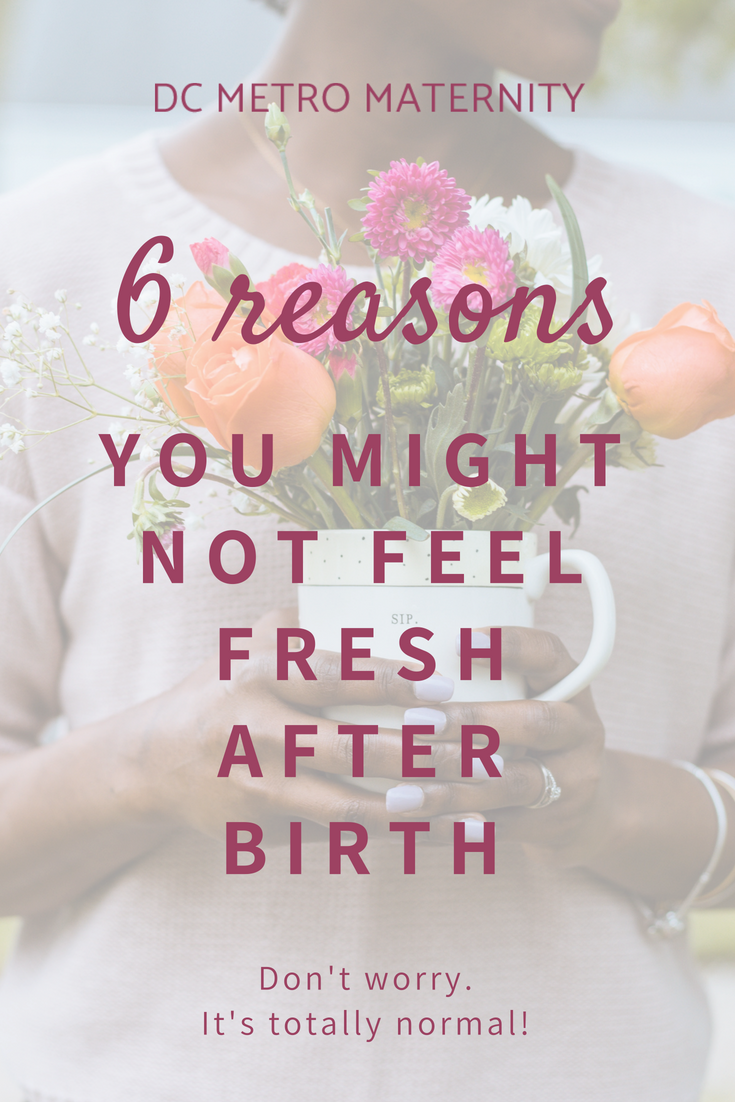When it comes to new motherhood, there are a few secrets that I hope someone tells you.
- Babies aren’t the only ones wearing diapers in those first few weeks home.
- Newborns aren’t the only ones who burst into tears without explanation.
- You probably won’t feel quite as glamorous and the staged photos on instagram would suggest.
But even as people get real about the ups and downs of this time period, there are some things that few speak of. One of those is body odor.
I think it’s kind of strange to me that we don’t discuss this more. After all, it kind of makes sense that you wouldn’t smell like a rose as a whole entire human comes out of your body. That’s hard work, and I don’t smell like a daisy after a workout.
It might be because, in the scope of all the things that happen during the postpartum period, a smell or two seems minor. The baby has to eat, you have to get settled in once you’re home from the hospital, you have to remember to feed yourself, and everyone needs sleep.
Who has time to question strange smells? Handling that can feel like it’s just ONE MORE THING. So we don’t ask anyone, and hope it goes back to normal.
Who would you ask anyway? Is postpartum body odor worth a call to your doctor?
Well, whether it’s a big deal or not, you and thousands of other new parents have wondered this. And who wouldn’t? I’ve personally been obsessed with smelling fresh since my mom used to say “go take a shower, you smell like outside” as a child.
So you can ask me, your postpartum doula. I’ve done the research, and I have answers!
Here are some possible sources of body odor after you’ve had a baby:
Postpartum bodies may sweat more than usual. During pregnancy, our blood volume increases a lot, and during many hospital births we are given IV fluids. After you have your baby, your body is losing a large volume of water, and sweating is one of the ways it exits. With sweat comes smells.
Your hormones are adjusting in a major way. This shift impacts everything: your hair, your milk supply, your mood, and of course your fertility. Just like our scent changes in puberty, the hormonal shift as your body recovers from pregnancy can change your body odor.
Vaginal discharge, lochia, may continue for 4-6 weeks after childbirth and can have a very distinctive smell. It’s a sign of your uterus healing and emptying itself after it’s grown your baby. Since this is your body’s time to shed cells that have been inside throughout pregnancy, it’s a bit different than an extended menstrual period.
Early parenting has its own scent. Drips of breastmilk or formula, baby spit up, diapers- none of these are laundry fresh scent. It’s common not to shower as often when you’re tired and a new baby is attached to you. No judgment if every day doesn’t bring a fresh pair of clothes.
Superhuman smelling powers are common in pregnancy. As your body settles down, this may or may not go away in time. But it’s possible that you smell things that others don’t.
Being extra gassy is not unusual after having a baby. If you’ve had a cesarean birth, then this is especially common. There’s extra air in your body after a surgery, and you have to get it out somehow.
See, all very logical explanations. You’re not weird or destined to be funky forever.
Let’s remember though, that not all smells are created equal. Check in with your doctor if:
-
A foul odor or pus seems to be coming from your cesarean scar or any stitches
-
You have itching, pain, green discharge or other signs of vaginal infection
-
You have a fever
Any of these could be signs of infection after birth, which is a cause of odor that we do need to be worried about.
But for most of you, the good news is that weird smells after having a baby will get better. Meanwhile, everyone around you will still love you even if you don’t think you smell like your usual self.
And the better news is that if you really can’t find time to get clean with a newborn, you can ask your postpartum doula to hold the baby while you take a much-deserved shower! We got you!



